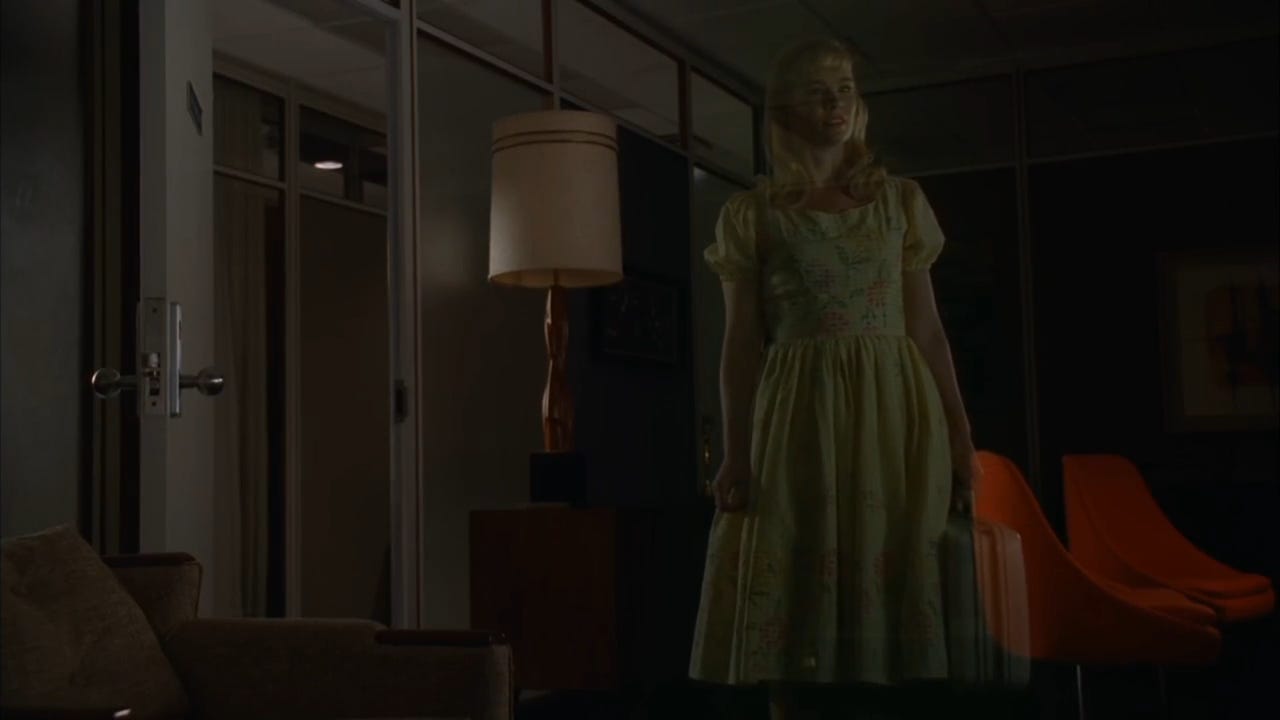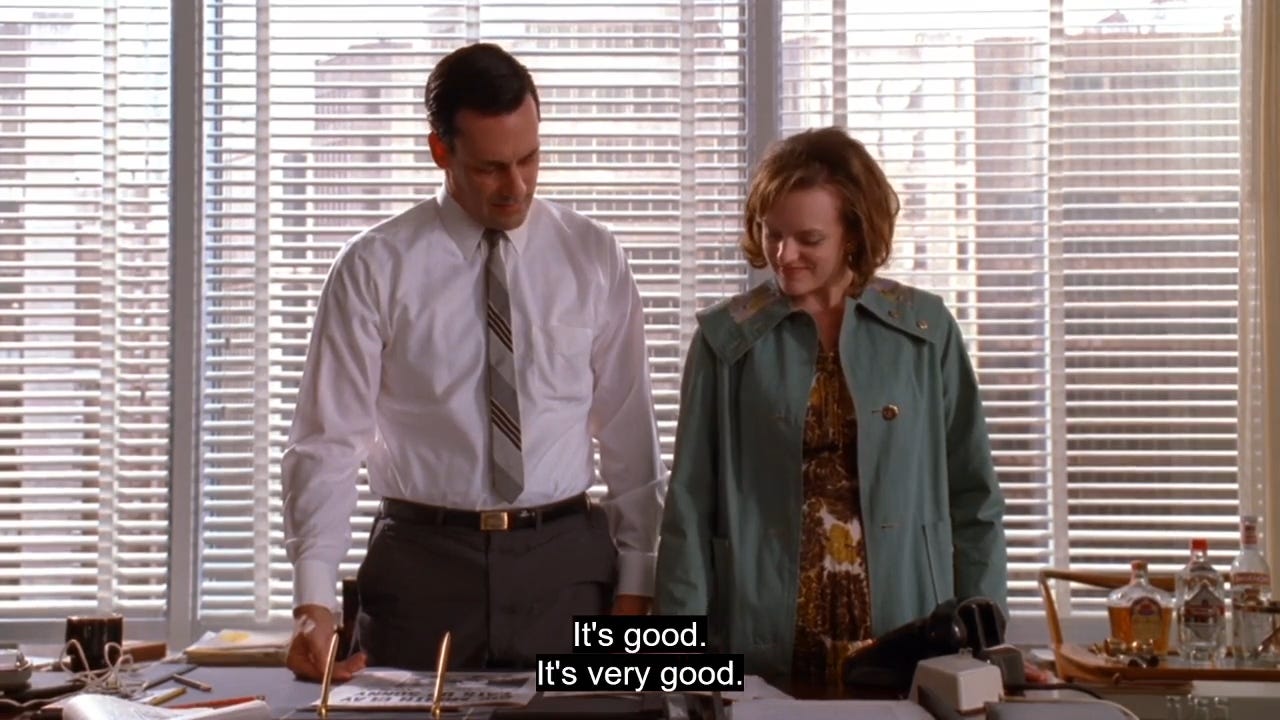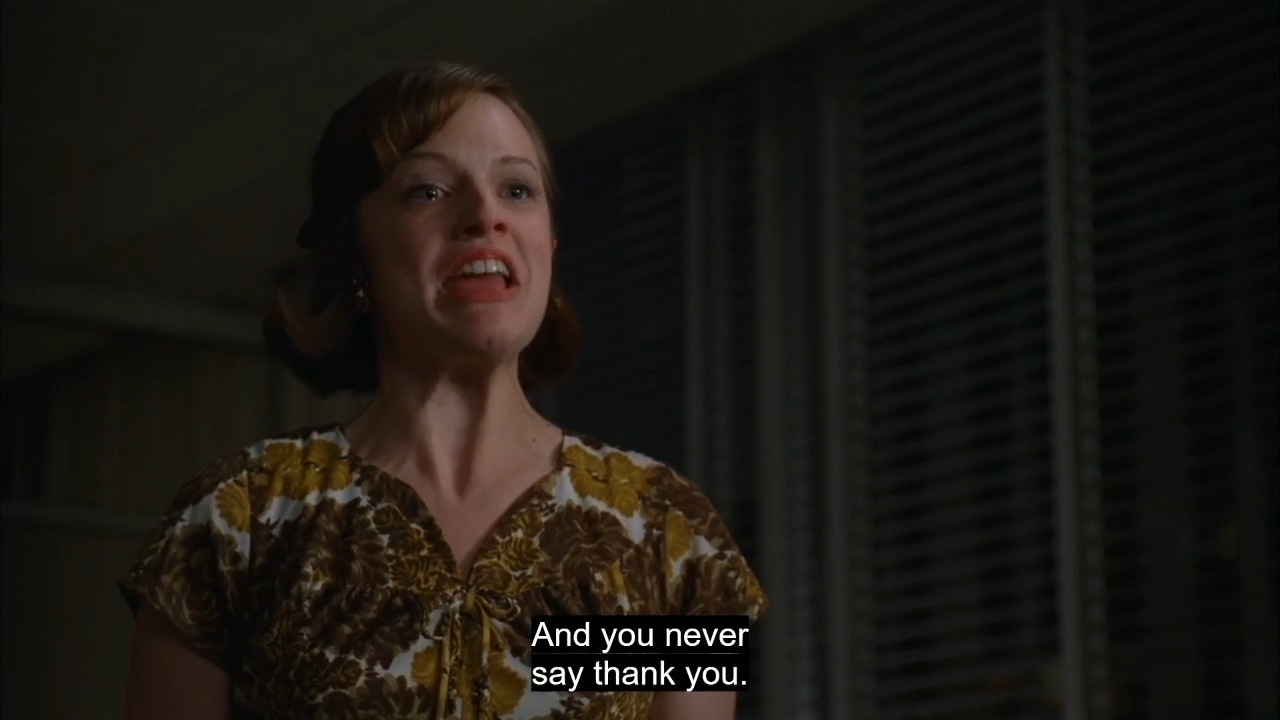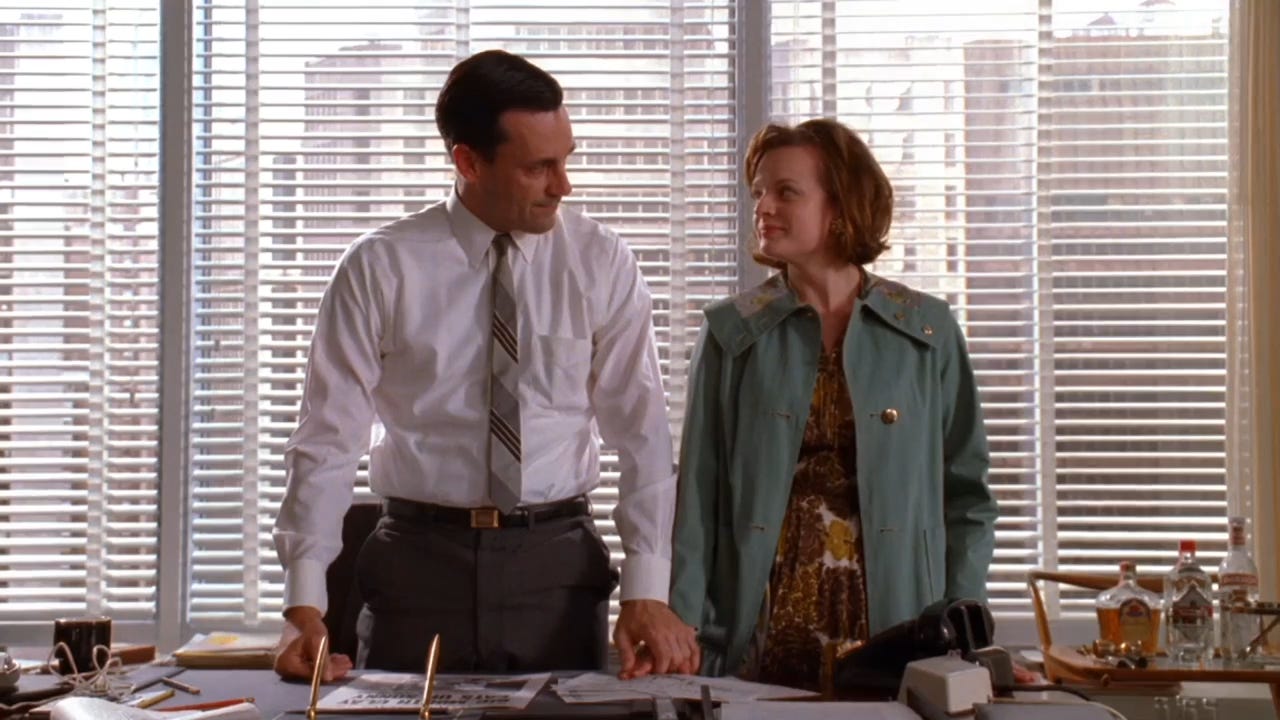Season 4: Episode 7
“The Suitcase”
Written by: Matthew Weiner
Directed by: Jennifer Getzinger
Setting: May 25-26th, 1965
There’s a question I ask myself often while rewatching “The Suitcase.”
“Did they know they were making the greatest TV episode of all time?”
“The Suitcase” is a perfection of Mad Men’s formula combining the weight of history with the lives of characters we’ve come to love. Any long-form narrative will have slower moments but at the exact halfway point of Mad Men’s run, they delivered an episode where every second is necessary.
Did they know how good “The Suitcase” was? I think so. The show is about creatives who not only know they are good but are intensely driven to deliver the greatest result of their abilities. The episode’s intense all-nighter full of yelling and tears rewarded by one great pitch mirrors what the creatives of Mad Men had to go through. The actors, writers, and production crew saw themselves in this episode and, as a result, everyone delivers all-timer work.
“The Suitcase” resonates because everyone has carried its weight. Time has felt like it was running out for you.

Work has felt like it doesn’t appreciate you.

Life has felt like it, not only, does not care for you but wants you to suffer.

People want to see something to strive for even in desperation. This is because deep down, everyone believes in their greatness.

It’s no coincidence that Mad Men’s greatest episode falls on the night of Muhammad Ali’s second fight with Sonny Liston which Ali won in a first-round knockout. Muhammad Ali was the greatest and he knew it. That doesn’t make life any easier. Just as failure and the pains of expectation weigh on you, success does too.
No one here wanted Ali to succeed. The bet is against him because he is “The Greatest.” Don is bothered by Ali’s new choice of name despite both men not using their birth names. The two have more in common than he realizes and, by the episode’s end, that gives them both power.
Don uses Ali’s iconic photo to inspire an ad that becomes a tribute to Ali’s greatness.
True greatness is given to others. What good is a beautiful symphony if no one can hear it? To be the greatest means to inspire greatness and meaning in others.
Ali did that inside and outside the ring.
Don did that by the side of Peggy Olson who once only knew the life of being a secretary.
“The Suitcase” did that for us.
An essential part of what makes “The Suitcase” so compelling is the abandonment of the show’s typical structure. Everything is intertwined, either featuring Don or Peggy. We aren’t watching a B-plot where Lane counts pennies, Betty punishes her children, or Roger has the 89th affair of his current marriage. After four seasons, the show has earned our undivided attention. You couldn’t do a plot like this in the first season because it would feel like we are missing something. The small moments featuring the other characters work because we can fill in the blanks. Every character interaction outside of Don and Peggy is the perfect amount. We never forget who the focus is on.
There is a whole world outside of Don and Peggy’s endless work day but we are confined to experiencing May 25th, 1965 through them.
Peggy only attends her birthday dinner through a phone call and then breaks up with her loser boyfriend rather than have to see him and her family. What would have been a standard B-plot in any other episode is rejected and the stakes feel higher.
The Ali vs Liston fight happens faintly over a bar radio while everyone else in the episode has revolved their entire night around watching it.
Finally, Don receives the call that his closest friend Anna Draper has passed. He could have been there with her but chose to “live his life” because that’s what Anna would have wanted.
Lonelier than ever, Don has to ask himself if this is living.

His answer is that he has to live for others. He won’t always hold himself to that standard but, at last, he realizes it.
Peggy sees it too.
Great advertising can be just as much of an art as throwing a knock-out punch with millions of eyes on you.
Letting someone know that they are not alone and that their greatness is seen is greatness in itself.
Greatness can take suffering and pain to achieve but it does not have to be lonely. Everyone can look to their own greatness and ask how will it help others.
Even you, Duck Phillips.

If you want to learn how to write great TV, watch “The Suitcase”
If you want to realize your greatness, watch “The Suitcase”
If you want to inspire greatness in others, be great.
Happy Birthday, Peggy Olson. You know, 85 is still very young!










